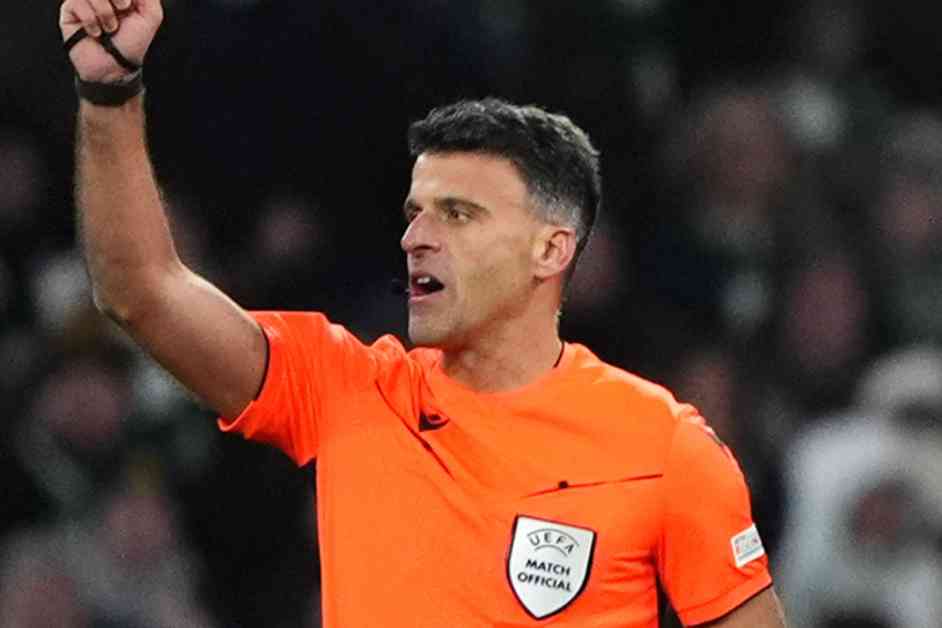Summary: Michael Ballack, a German football legend, believes that Celtic was unfairly denied a penalty against Bayern Munich in a recent Champions League match. Despite a clear foul on Celtic midfielder Arne Engels inside the box by Bayern’s Dayot Upamecano, the referee, Jesus Gil Manzano, opted against awarding a penalty after a VAR review.
In a recent Champions League clash between Celtic and Bayern Munich, a controversial penalty decision has sparked debate and outrage among fans and pundits alike. German football icon Michael Ballack, who was in attendance as a TV pundit at Parkhead, expressed his views on the incident that unfolded in the second half of the match.
Expert Opinion: Michael Ballack’s Verdict
As a seasoned football analyst with a wealth of experience in the game, Ballack did not mince words when commenting on the penalty decision that went against Celtic. He highlighted the clear foul committed by Bayern’s Dayot Upamecano on Celtic midfielder Arne Engels, stating, “He clearly stepped on his ankle, so that’s actually a foul.” Ballack emphasized that if a similar incident had occurred in midfield, it would undoubtedly have been awarded as a free kick.
Moreover, Ballack delved into the nuances of the decision, questioning whether Upamecano’s actions were a clear defensive move or a deliberate obstruction to prevent Engels from reaching the ball. He asserted, “It doesn’t matter whether it was intentional or not. It’s a foul and only the assessment of the kick on his ankle is what should count.” Despite the referee’s ruling that Upamecano had played the ball first, Ballack remained steadfast in his belief that it was indeed a foul that warranted a penalty for Celtic.
Reflecting on Bayern’s fortune in the situation, Ballack acknowledged that luck plays a part in football but stressed the importance of fair and accurate officiating. He concluded, “Bayern were certainly a bit lucky in the situation. But you need that sometimes.”
Reactions and Fallout
Following Ballack’s comments and the contentious decision in the match, fans and pundits took to social media to express their thoughts on the incident. Many Celtic supporters voiced their frustration at what they perceived as a blatant injustice, calling for greater accountability and consistency in refereeing decisions.
In response to the growing controversy, Bayern Munich issued a statement reaffirming their respect for the referee’s judgment while acknowledging the contentious nature of the penalty incident. The club’s chief emphasized the competitive atmosphere at Celtic Park, describing it as a “seething cauldron” that often leads to intense moments and heated debates.
Amidst the aftermath of the match, Celtic goalkeeper Kasper Schmeichel shared his surprise at the punditry confession regarding the penalty decision, highlighting the emotional rollercoaster that players and fans experience during such high-stakes encounters.
As the football world continues to dissect and analyze the events of the match, the debate surrounding the penalty decision serves as a reminder of the passion, drama, and controversy that make the beautiful game so captivating.
In conclusion, Michael Ballack’s expert analysis sheds light on the intricacies of refereeing decisions in football and underscores the need for clarity, consistency, and fairness in officiating. While debates and controversies will always be part of the sport, it is essential to uphold the integrity and spirit of fair play that define the essence of football.


















